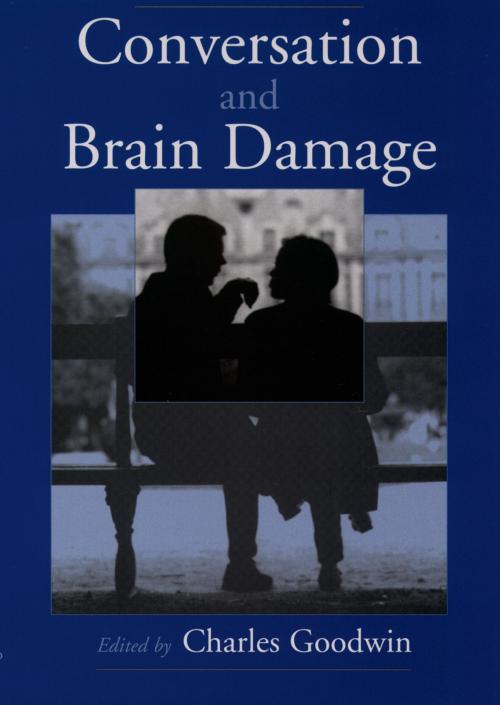Conversation and Brain Damage
Nonfiction, Health & Well Being, Psychology, Psychiatry, Medical, Specialties, Internal Medicine, Neurology, Reference & Language, Language Arts, Linguistics| Author: | ISBN: | 9780190284626 | |
| Publisher: | Oxford University Press | Publication: | January 23, 2003 |
| Imprint: | Oxford University Press | Language: | English |
| Author: | |
| ISBN: | 9780190284626 |
| Publisher: | Oxford University Press |
| Publication: | January 23, 2003 |
| Imprint: | Oxford University Press |
| Language: | English |
How do people with brain damage communicate? How does the partial or total loss of the ability to speak and use language fluently manifest itself in actual conversation? How are people with brain damage able to expand their cognitive ability through interaction with others - and how do these discursive activities in turn influence cognition? This groundbreaking collection of new articles examines the ways in which aphasia and other neurological deficits lead to language impairments that shape the production, reception and processing of language. Edited by noted linguistic anthropologist Charles Goodwin and with contributions from a wide range of international scholars, the articles provide a pragmatic and interactive perspective on the types of challenges that face aphasic speakers in any given act of communication. Conversation and Brain Damage will be invaluable to linguists, discourse analysts, linguistic and medical anthropologists, speech therapists, neurologists, psychiatrists, psychologists, workers in mental health care and in public health, sociologists, and readers interested in the long-term implications of brain damage.
How do people with brain damage communicate? How does the partial or total loss of the ability to speak and use language fluently manifest itself in actual conversation? How are people with brain damage able to expand their cognitive ability through interaction with others - and how do these discursive activities in turn influence cognition? This groundbreaking collection of new articles examines the ways in which aphasia and other neurological deficits lead to language impairments that shape the production, reception and processing of language. Edited by noted linguistic anthropologist Charles Goodwin and with contributions from a wide range of international scholars, the articles provide a pragmatic and interactive perspective on the types of challenges that face aphasic speakers in any given act of communication. Conversation and Brain Damage will be invaluable to linguists, discourse analysts, linguistic and medical anthropologists, speech therapists, neurologists, psychiatrists, psychologists, workers in mental health care and in public health, sociologists, and readers interested in the long-term implications of brain damage.















